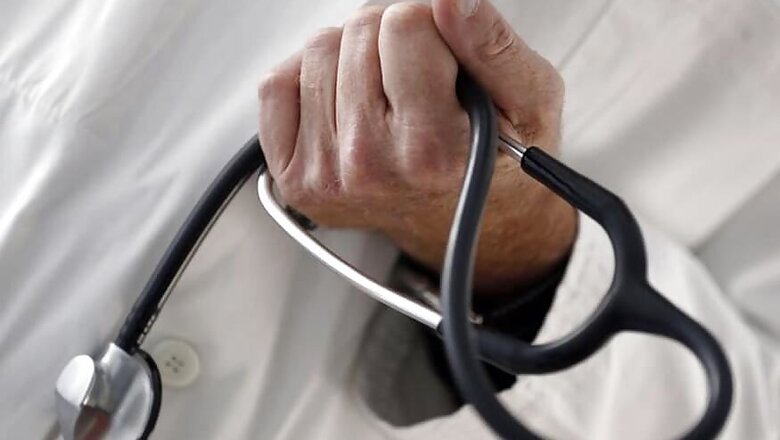
views
New Delhi: Can computers suggest plans of treatment, choice of drugs, dosages, likelihood of recurrence or predict the success rate of a surgery? Can computers help patients do a self-diagnosis? These are some of the ideas that government think tank Niti Aayog has come up with in a bid to revolutionise the healthcare system.
“Patients may input descriptions of their symptoms and the system can calculate a simple differential diagnosis list. Adoption of such modern means of providing healthcare will reduce the burden on the already burdened healthcare system in the country,” the Niti Aayog says in its report, titled ‘Health Systems for a New India: Building Blocks Potential Pathways to reform’.
This is a comprehensive report on how India can build on the momentum to improve healthcare infrastructure. One of the key suggestions is a further push that is required for harnessing the potential of digital healthcare in the country and use of technology to improve delivery systems.
The report says there is an enormous amount of future growth in digital health applications. However, to make use of these technologies in the future, India needs to build a firm foundation in digital health.
There are “no shortcuts to building digital health in a methodical, coordinated, and integrated way,, says the report.
“At a systems level, overcoming the challenges of fragmentation, across healthcare financing and service delivery, will help us optimise both quality and access. India now needs to build on its many opportunities to achieve further progress on the health of its citizens and respond to the growing aspirations and needs of a new India," said Dr Rajiv Kumar, Vice Chairman, NITI Aayog.
Here are some of the important suggestions made in the report.
Clinical Decision Support System
Computers may soon be able to help physicians plan a line of treatment for their patients in some essential ways which frees the physician from remembering the formulary, treatment guidelines and the drug-drug interaction information.
If explored right, the Niti Aayog sees this as a major step in reducing the burden on doctors and healthcare providers in the sector.
Pre-Diagnose Systems
Computers can also help patients help self diagnose. The concept of a patient describing his/her symptoms and the system calculating a simple differential diagnosis list may not be a far-fetched one.
Patients can then do further research on their own using validated information readily available on the Internet. This can inform the patient about the urgency of seeking medical care for the conditions listed and the likely treatment options they face.
This might reduce the workload of overworked physicians faced with an army of people suffering from simple conditions such as common cold, simple flu and the like. When the symptoms are more severe, advice can be offered to the patient to seek medical care or even go directly to an emergency room.
Personalised Medicine
In future, bioinformatics will give us more information about the genetic make-up of each patient and how someone’s health might be affected by his or her genes. The so-called “personalised medicine” will then be able to suggest which drug might be most effective for a particular patient and which drug to avoid as that patient might have a greater probability of facing severe counter-indications.
Telemedicine
In tele-presence, the walls of a hospital/medical centre disappear. When we can truly remove the barriers of technology, we can imagine that health can be managed in wholly new ways where the physical laying-on-of-hands are no longer paramount, says the report.
There are more examples of where this technology can be applied – tele-radiology and tele-pathology.
Progress in digital health may come just in time to deal with India’s ever-increasing onslaught of non-communicable diseases (NCDs). Managing chronic diseases longitudinally over many decades will require new approaches to healthcare delivery. Involving individuals directly in the self-management of their diseases may improve patient compliance and may help us avoid some severe complications by quickly recognising the first signs of their disease.
The report, synthesis of a one-year exercise, was released by Niti Aayog Vice Chairman Rajiv Kumar in the presence of Bill Gates, co-chairman of the Bill and Melinda Gates Foundation.
















Comments
0 comment